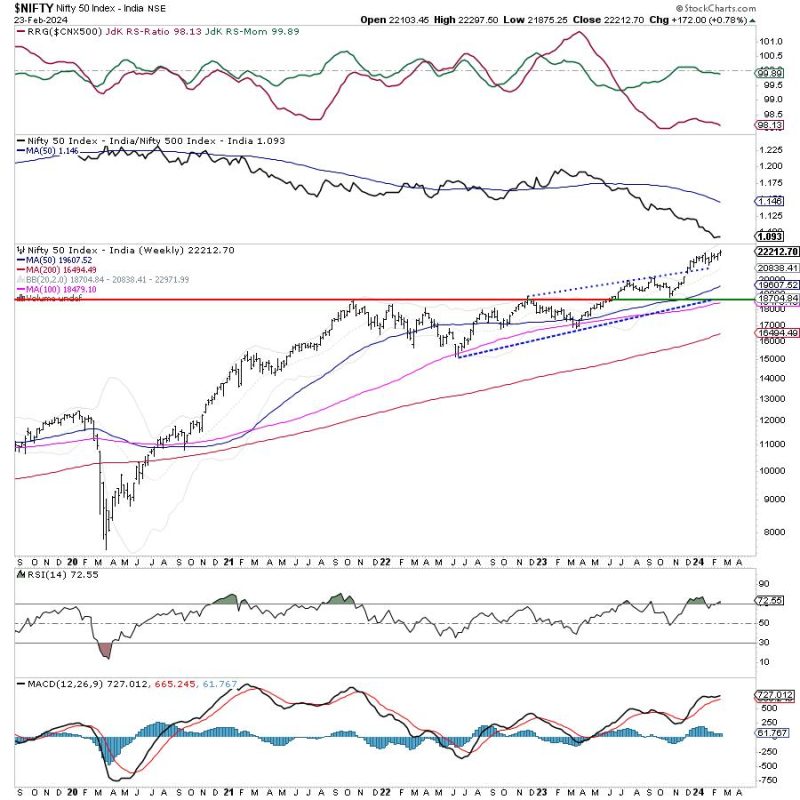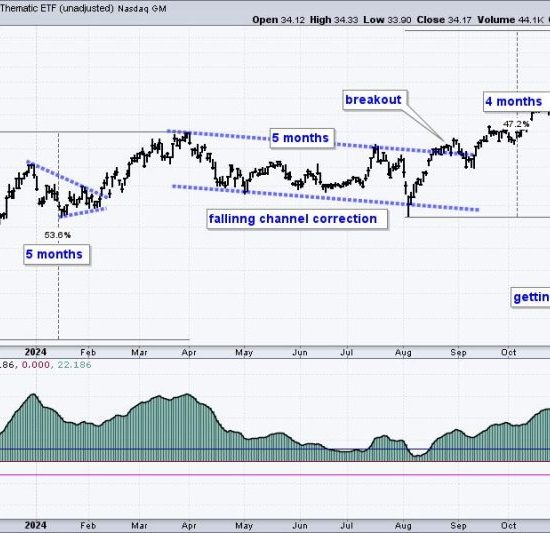In the forthcoming week, market pundits expect the National Stock Exchange’s NIFTY to continue with its consolidation phase, moving in a narrow range and maintaining its stability. The consolidation period signifies a period of indecisiveness in the marketplace where neither buyers nor sellers are able to gain an upper hand.
While equity markets are anticipated to remain range-bound in the upcoming week, some sectors will likely see relative outperformance. Sector-specific micro-trends may emerge, subsuming the broader trend of consolidation. Thus, investors should keep an eye out for such trends and make their strategy accordingly.
The NIFTY 50, a benchmark Indian stock market index, registered moderate losses in the previous week. However, it remained within a specific range, highlighting its inclination towards consolidation, a trend likely to continue next week. Guided by global indices and domestic macros, the market may exhibit a sideways trajectory until a significant trigger breaks the current price action.
Historically, the markets have seen periods of consolidation after a significant run-up or correction. And this time should be no different. However, the length and the depth of this consolidation period remain to be determined by multiple factors like global cues, corporate earnings, and economic indicators.
While the broader market independence may be inclined towards consolidation, potential pockets of outperformance could emerge. Many sector-specific triggers possibly give rise to several stocks and sectors outperforming the broader market.
For instance, sectors related to infrastructure and cement have been performing well, considering government’s renewed focus on infrastructure development. A similar story is shaping up for the IT sector, which might witness relative outperformance due to the current dynamic work culture induced by the pandemic and overseas deal flow.
Similarly, defensive sectors like FMCG and pharma can also be bright spots in the consolidating NIFTY, especially given the potential resurfacing of stringent COVID-19 restrictions. These sectors typically do well during periods of heightened market volatility, providing investors with stability and safety.
Banking and financial sectors, however, might witness selling pressure in the wake of rising concerns surrounding non-performing assets and regulatory developments. Hence, this sector might not significantly contribute to market performance in the week ahead.
Investor sentiment will also play a vital role. Sectors enjoying beneficial tailwinds or those unstirred by unfavourable headwinds can attract investor interest and perform relatively better.
In conclusion, while the NIFTY is anticipated to remain in its consolidation phase, relative outperformance from specific sectors can possibly be anticipated. With an accommodative stance from Reserve Bank of India (RBI) and impressive net foreign portfolio investment (FPIs) inflows, it would be premature to term the present consolidation as a downward spiral. The long-term outlook continues to be bullish.
Therefore, in the coming week, investors should focus on a stock-specific approach while keeping a close eye on global factors, domestic market cues, and sector-specific triggers. Nurture a balanced portfolio, combing high-performing potential sectors with defensive stocks providing stability, thus bridging growth potential with risk management.




